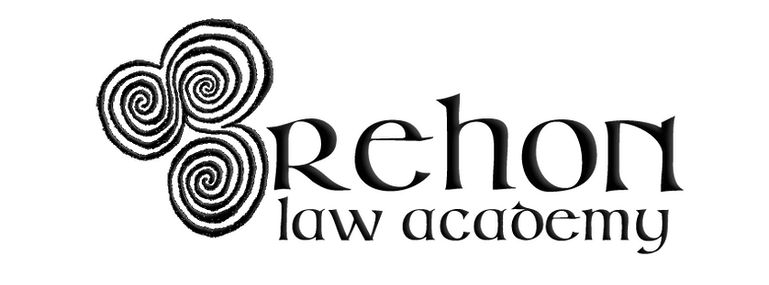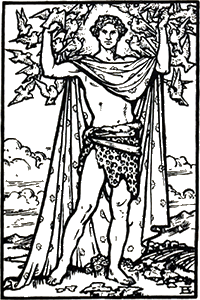How Cú Chulain Got His Name - Restitution In Irish Mythology
June 18, 2023
Under the Ancient Irish Brehon Laws restitution was the favoured method for dealing with wrongdoings.
Compensations owed by offenders are given great attention in the legal manuscripts, but it is the mythological sagas that illustrate more vividly how this principle might have worked in practice; or at least they point to the sublime logic behind it.
The early Irish viewed a wrongful act as creating an imbalance in the harmonious natural order of things, and the Druids or Brehons, in their wisdom of the Laws of Nature and of Man, sought to find a solution that would re-harmonise and re-balance the negativities caused by the wrongdoing. Punishment of an offender only adds to the sum total harm, suffering, or negativity in the world, the ancient Irish felt better that the offender should help alleviate the victims suffering by directly sharing in it through proportionate compensations.
Cú Chulain, the great Irish hero of the Ulster Cycle of Irish Mythology, was born Sétanta Mac Sualtim from the womb of Decthine, sister of Conchubhar MacNessa, king of Ulster. At the young age of seven he left home to join the boys at Conchubhar’s Court, the seat of the famous Knights of the Red Branch, and quickly surpassed all the other boys at sports and fighting to the pleasure of King Conchubhar, his Uncle. This boy obtained his new warrior name shortly afterwards and the story of how this came to be gives a poetic example of the principle of restitution in action.
King Conchubhar was leaving his court at Emain Macha (near present day Armagh) to attend a feast of a local blacksmith named Culain when he spotted the young Sétanta running rings around the other boys in a game of hurling. Gladdened by this Conchubhar beckoned for Sétanta to accompany him to the feast. Sétanta agreed to follow him there shortly as he wanted to continue showing the others how a champion plays the sport.
Arriving at the feast Culain asks Conchubhar if any more people were left to attend, forgetting that his nephew was due to follow Conchubhar said “There are none more to come, and why do you ask this?”, “because”, Culain replied, “I will release my hound to protect my cattle and my lands”. Culain’s hound was renowned for being ferocity, a huge beast it would yield for no-man but its master.
When Sétanta turned up some time later the great beast did not hesitate to make its attack. Without second thought Sétanta, hurley in one hand and slíotar in the other, took one decisive shot and drove the ball so far down the hound’s throat that it died instantly. The ruckus alerted the other attendants who by this time had come out to see what had happened, to the shock, awe and even bemusement of most of the guests they found the young lad standing having slew Culain’s prize beast. Naturally Culain was not impressed by this discovery, he lamented “It is not good luck that you should come here this night, for now my hound is killed my living will be torn asunder, my crops laid waste and my cattle stolen”, to this Sétanta responded:
“Do not be vexed on account of that and I myself will make up to you for what I have done. If there is a whelp off the same breed to be had in Ireland, I will rear him and train him until he is as good a hound as the one killed; and until that time, Culain, I myself will be your watch-dog, to guard your goods and your cattle and your house.”
Cathbad the Druid said “I could have given no better judgement myself. And from this out, your name will be Cuchulain, the Hound of Culain”.
“I am better pleased with my own name of Setana, son of Sualtim”.
“Do not say that,” said Cathbad, “for all the men in the whole world will one day have the name of Cuchulain in their mouths.”
“If that is so, I am content to keep it.”
Henceforth, Sétanta assumed his warrior name the Hound (Cú) of Culain (Chulainn) and repays the wrong committed, restores the loss incurred, re-harmonises the negativity created by assuming the duty and responsibility of that which he took away. Filling the gap of a loss which he caused, making it appear, as closely as possible, that the loss never occurred in the first place. Culain has been ‘restored’ to his original, natural position.
Learn more about Ancient Ireland's Culture and Society Online
Save 20% Here!














